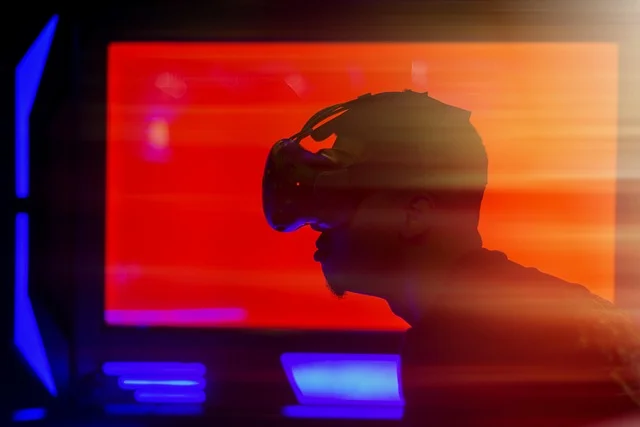
Source: Foxtechview.com
Introduction:
In the digital era, information has never been as available as it is today. Background checks guide employers, landlords, and even individuals to make wise decisions on whom they hire, rent to, or even associate themselves with. Cyber Background Checks has become one of the most popular tools among the numerous existing platforms nowadays. However, there exists one major question, which is, how accurate are Cyber Background Checks reports?
This paper discusses the accuracy of these reports, the sources that are used to formulate them, and what may impact the accuracy.
Understanding CyberBackgroundChecks
CyberBackgroundChecks is an online background checking service that gathers all free information and presents it in a convenient report. The platform does not require conducting a manual search in court databases, property records, or social media profiles, allowing one to see all the data in one consolidated view. Typical reports may include:
- Criminal records (which are publicly available)
- Address and phone history
- Property ownership records
- Social media activity
- Established family members or friends.
This is aimed at making it easier to collect background information. Nevertheless, the accuracy can be different, as the platform heavily relies on public information and web-based data.
The Sources of Accuracy
Public Records Reliability
Cyber Background Checks taps into government records, including court records, arrest records, and property deeds. Such records are usually good since they are taken by the institutions themselves. Nevertheless, there still may be some mistakes because of clerical mistakes, outdated records, or delays in updating databases.
Aggregation and Matching of Data.
The biggest issue with background checks is identifying records with the right individual. The chances of sharing a common name occur, resulting in an overlap of the records and inaccuracies. Cyber Background Checks employs the identifiers, such as date of birth and known addresses, to minimize this risk, yet the mismatch may happen.
Time Sensitivity
The correctness of the information can sometimes be determined by the currency of the information. One example of a criminal charge expunged in the last month can still be reflected in a Cyber Background Checks report until the system updates its databases. This causes a disparity between reality and the one depicted in the report.
Common Accuracy Issues
Although these reports are convenient to many users, some inaccuracies might be observed:
- Obsolete Information—The report might still contain old information, such as old addresses or phone numbers, or employment histories that have changed.
- Lacking Records—All jurisdictions are not ready to provide digital records easily. This implies that there may be a missing piece of some criminal or court information.
- False Positives—Given the similarity in names, the records of individuals with different names may end up in the person’s report.
- Social Media Data—Data that is collected through online profiles may be inaccurate in case there is a misattribution or an inactive account.
These concerns do not imply that CyberBackgroundChecks is not a reliable service; it is just a natural consequence of the nature of the data aggregation services.
Legal and Ethical Allusions.
The accuracy is not only of the convenience but also of the legal and ethical issues. The Fair Credit Reporting Act (FCRA) governs consumer reporting agencies in order to maintain accuracy, equity, and confidentiality. Nonetheless, a lot of online services, such as CyberBackgroundChecks, are not FCRA-compliant since most of them are meant to serve informational and not official screening purposes.
This is a very important difference. Legal action may be taken against an employer or landlord who relies on the services of non-FCRA-compliant companies to make hiring or rental choices that result in mistakes in the reports. To this end, CyberBackgroundChecks itself discourages the use of its reports in employment, credit, or housing purposes.
Comparison of Accuracy and Traditional Background Checks.
The conventional background check firms tend to check information manually by cross-checking records and calling institutions to verify information. CyberBackgroundChecks, in its turn, is focused on speed and convenience, as it automates data collection.
- Traditional Checks – Checks are more accurate because of the verification procedures, and they are more costly and time-consuming.
- CyberBackgroundChecks – It is quicker and cheaper, but there is a more significant probability of outdated or misaligned data.
The decision will be based on context. CyberBackgroundChecks might be enough to complete casual personal research, including finding a lost friend or checking contact details. However, a formal decision on an issue related to employment or housing requires the traditional FCRA-compliant background check.
The way users may interpret the reports.
Since there is a possibility of inaccurate data, users are advised to take Cyber Background Checks reports with caution and context:
- Double-Check Information- When feasible, check material information by reference to official records.
- Consider Timeframe – Older entries (i.e., outdated addresses or phone numbers) should be treated as historical data and not current data.
- Find Consistency – Multiple data points (such as repeated addresses) tend to be more consistent than single data points.
- Aware of Limitations – It is important to understand that not all data can be assured to be up-to-date or complete.
The Bottom Line
Therefore, what is the accuracy of CyberBackgroundChecks reports? The solution is between useful and flawed. The reports offer a convenient base point for collecting publicly available information that is frequently in an unexpected degree of detail. Nevertheless, they are not flawless, and mistakes such as obsolete speeches to incorrect databases might be made, however.
CyberBackgroundChecks may be a useful resource to use in terms of casual, informational purposes. However, when precision is extremely important, such as in legal, financial, or employment aspects, then the user must utilize FCRA-compliant background check providers. Finally, reports in the platform must be viewed as a guideline and not a conclusive document.
Frequently Asked Questions (FAQs).
Q1: Is CyberBackgroundChecks.com a valid company?
CyberBackgroundChecks.com is a valid site, and the records are publicly accessible. Nevertheless, it is not FCRA-compliant, i.e. its reports cannot be legally relied on to make decisions on employment, credit, or housing. It is more appropriate to individual research and informational interests.
Q2: What does the CyberBackgroundChecks Reddit tell about the service?
The problem of CyberBackgroundChecks has mixed opinions on Reddit. The reports are shockingly detailed and helpful to some users, and some are concerned with the outdated or inaccurate information. Reddit posts tend to stress that one should always check the accounts with the official records before trusting them.
Q3: What is the contact to request CyberBackgroundChecks removal?
In case you desire that your data be taken down on CyberBackgroundChecks, then you can make an opt-out request via the site. It can be done in a few business days by first verifying your identity. This does not mean that your data is not stored in any public records, but only the database of CyberBackgroundChecks will be cleared out.
Q4: Cyberbacker, is it CyberBackgroundChecks?
No, there are two different services, Cyberbacker and CyberBackgroundChecks. Cyberbacker is a virtual staffing firm that offers remote services to businesses, whereas CyberBackgroundChecks is an online background check service. The similarity in the name will be confusing; however, they are in two different industries.







